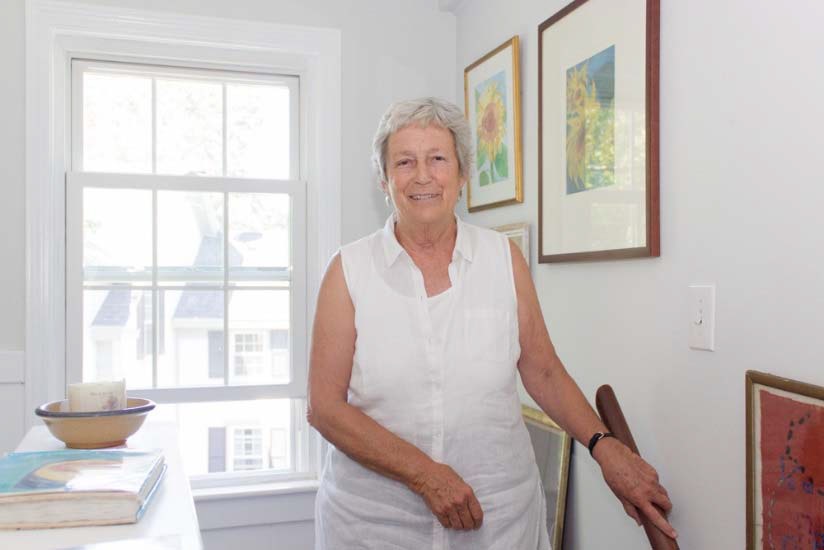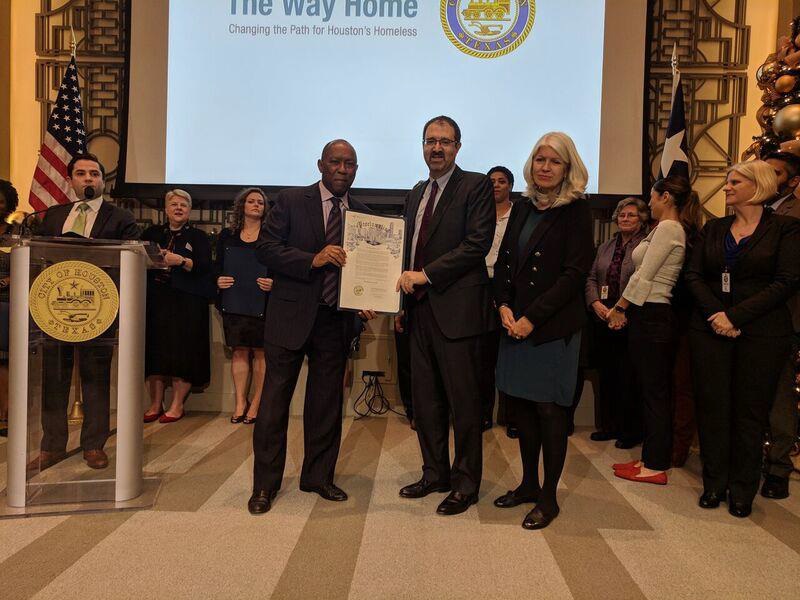Award of Excellence: Comfortably Home

Bath Housing wins a 2018 Award of Excellence in Resident and Client Services for the Comfortably Home program, which provided housing for seniors to age in place peacefully. Nominated from among the NAHRO Award of Merit winners each year, the Awards of Excellence winners are chosen by national juries and honored at the annual National Conference and Exhibition in October. They represent the very best in innovative programs in assisted housing and community development.
Across the country, communities are struggling to prepare affordable housing for their aging population. Also, older adults tend to want to age in their own homes instead for relocating to supportive housing that remove them from their family support systems. To successfully age in place, seniors need access to various services including social services, health care services, and appropriate housing. The Comfortably Home program was created from Bath Housing’s belief that safe, stable housing for all is critical to the health and wellness of a community.
In Maine, there is a strong network of area agencies on aging, but a distinct lack of support on the housing side. Like many housing authorities dealing with an increasingly aging population, Bath Housing was facing a senior housing shortage. Comfortably Home began as Bath Housing’s vision to fulfill their belief that safe, stable housing is critical to the health and wellness of a community. Elderly and disabled residents were waiting up to 24 months for eligible housing units, however, many preferred to stay in their own homes but could no longer keep up with maintenance—creating potentially serious health and safety issues.
Documentation of the senior housing shortage started with the 2014 Bath Area Housing Assessment, which found that:
- Bath’s elderly tend to be homeowners, but as they age keeping up with maintenance costs and other demands associated with homeownership becomes more difficult.
- Property taxes and utility costs have increased in the area, which can be difficult to manage on a limited budget.
- Nearly 30 percent of the housing statewide was built before 1950, but in Bath, that number jumps to 60 percent.
- One in six area residents live in unstable housing situations because they can’t afford it, it’s a maintenance burden, or the quality is poor.
The biggest takeaway was that the existing housing stock in the area is not well suited to the changing demographics of the region.
With this knowledge in-hand, Bath Housing held an extensive series of meetings locally, regionally and statewide to understand the extent of existing services. They learned that there were only a few local examples that helped with housing.
In 2012, Coastal Enterprises hosted a stakeholder meeting to present an overview of their findings on the aging demographic. The report noted that “one of the biggest barriers to aging in place is the ability of people to maintain their homes and to pay heating costs. In particular, the aging housing stock and the prevalence of mobile homes among low-income seniors present challenges for aging in place.” Comfortably Home was developed as a new model of service delivery where the local housing authority provides minor repairs and basic accessibility and safety improvements for elderly homeowners to age in place in the community. Their simple program has three characteristics:
- It’s comprehensive: The team assesses any problems in the home, provides the solution and covers the cost. Most organizations do not do all three, leaving the homeowner to coordinate assessment, obtaining and distributing funds and hiring and coordinating providers.
- It’s low-cost, high-impact: Comfortably Home specializes in one-time, minimally disruptive but high-impact minor home improvements.
- It’s individualized: The team approaches assessment from the homeowner’s perspective and provides personalized solutions customized to their daily routines, needs, and preferences.
While assisting their clients, the Comfortably Home team seeks to embody three core values:
- Respectfulness: They treat every homeowner and their home with sensitivity and individualized care.
- Responsiveness: They approach each homeowner’s needs and preferences with customized solutions.
- Resourcefuless: They invest professional skills, superior customer service, and high-quality materials into every home.
During the pilot program period between October 1, 2015 and December 31, 2016, the total program cost was $176,561. The pilot phase was funded entirely with grant funds from the John T. Gorman Foundation. The pilot phase documented that an investment of $2,755 per home had positive outcomes in fall prevention, fire risk reduction, reduced hospitalizations, increased independence, and relief of financial burden.
The pilot evaluation plan and tools were developed in consultation with Sarah L. Szanton, Ph.D., ANP, FAAN from Johns Hopkins University. Bath Housing completed data collection and Patricia Oh, LMSW, MS, an AARP-Maine consultant and Ph.D. candidate in the U-Mass Department of Gerontology, completed in-kind data analysis. Fifty-four households were served, and all participants were reassessed using the same approach at six months from the end of participation. The survey found that participation in the Comfortably Home program was associated with:
- A reduction in falls by 85 percent and the severity of falls by 91 percent;
- An 87 percent reduction in close call related fires;
- A 54 percent reduction in hospitalizations and ER visits;
- An 86 percent improvement in participant’s ability to perform instrumental activities of daily living (IADLs).
- The number of participants who felt or were isolated because of physical or psychosocial barriers decreased by 44 percent;
- Ninety-six percent of participants indicated that they felt the program relieved some of their financial burdens.
Once the pilot phase was over and all private grant funds were expended, Bath Housing secured funding from MaineHousing to continue program operation. Using unrestricted state funds, MaineHousing funded Bath Housing and four additional housing authorities to run the program in 2017 and committed funding for the five participating housing authorities in 2018. Based on the success of the program, MaineHousing has also issued a call to any new housing authorities that may want to launch a similar program.
The goals for future financial support of the program include:
- Adopt a fee-for-service pay model for those with incomes greater than 80% AMI; ask participants to pay a small “co-pay”;
- Identify new sources of funding, including a statewide housing bond, national housing trust funds, social impact bonds; and
- Document evidence-based impact of the program to support changes to health care funding that will provide for Medicaid payments for accessibility upgrades in the home.
By developing the Comfortably Home program, Bath Housing was able to help more than 50 households to safely remain in their homes, and not be forced to separate themselves from their support systems and families.
More Articles in this Issue
Celebrating Housing America Month 2019
For more than 10 years, October has been Housing America Month, when NAHRO and its…Award of Excellence: Financial Freedom Program
The Portsmouth Redevelopment and Housing Authority (PRHA) wins a 2018 Award of Excellence in Resident and Client Services for the Financial Freedom Program,…Award of Excellence: STEM Connect After-School Program
The Housing Authority of the City of Meadville (HACM) wins a 2018 Award of Excellence…Award of Excellence: Promoting Healthy Communities for Seniors
The Housing Authority of the County of Los Angeles (HACoLA) wins a 2018 Award of Excellence in Resident and Client…Award of Excellence: Attendance Matters
The Sarasota Housing Authority (SHA) wins a 2018 Award of Excellence in Resident and Client Services for the Attendance Matters program, which focused…Award of Excellence: Houston’s Homeless Mayor’s Challenge
The Houston Housing Authority wins a 2018 Award of Excellence in Resident and Client Services for their efforts to help house over 500 chronically homeless individuals in…Regulating E-Cigarette and Marijuana Use in Public Housing
n 2016, the U.S. Department of Housing and Urban Development (HUD) issued a regulation requiring public housing…




